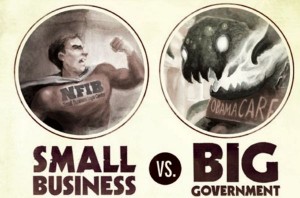Supreme Court Hearings on Health Care Reform Kick Off

The US Supreme Court will hold hearings this week on a lawsuit challenging the constitutionality of Obama’s health care plan. The lawsuit was filed by twenty six states, four small business owners, and the proudly ferocious National Federation of Independent Business (NFIB.) The lawsuit contends the federal government does not have the authority to order people and businesses to buy health insurance (and face fines if they don’t.) The hearings will surely be closely watched. Indeed, the future of Obamacare depends upon a favorable ruling.
The Obama health care reform plan mandates that people plus businesses with more than fifty employees must have health care insurance by 2014. Businesses that do not comply face a fine of $2,000 per employee. (The fine could be cheaper than buying insurance, for businesses refusing to comply or wishing to make a stand on principle.) Among the loudest voices protesting the Obama plan are those from NFIB. They say the plan is unconstitutional, threatens small business, and that the time has come to “Kill the Obamacare beast.”
But it's not just a feisty business group that is suing. Twenty six states, more than half, are also partners in the lawsuit. They are Alabama, Alaska, Arizona, Colorado, Florida, Georgia, Indiana, Idaho, Iowa, Kansas, Louisiana, Maine, Michigan, Mississippi, Nebraska, Nevada, North Dakota, Ohio, Pennsylvania, South Carolina, South Dakota, Texas, Utah, Washington, Wisconsin, and Wyoming. Five of the top ten most populous states are members of the lawsuit.
One of the original individual members of the lawsuit was Mary Brown, a small business owner with no insurance who recently filed bankruptcy citing medical bills as part of her debt. As you can imagine, liberal bloggers had quite a lot of fun with this. But her medical bills were just $4,500 and she said there were other bills too. Comprehensive health care insurance for someone like her could easily cost more than $4,500 a year. She believes the government does not have to right to tell her to buy insurance.
The Supreme Court will decide on this crucial and controversial issue. At heart, the lawsuit is a protest against federalism and what the plaintiffs view as an out of control national government seeking increased powers to regulate everything, including business. This debate has been going on since the country was founded, with the current battlefield being Obama’s health care plan.



